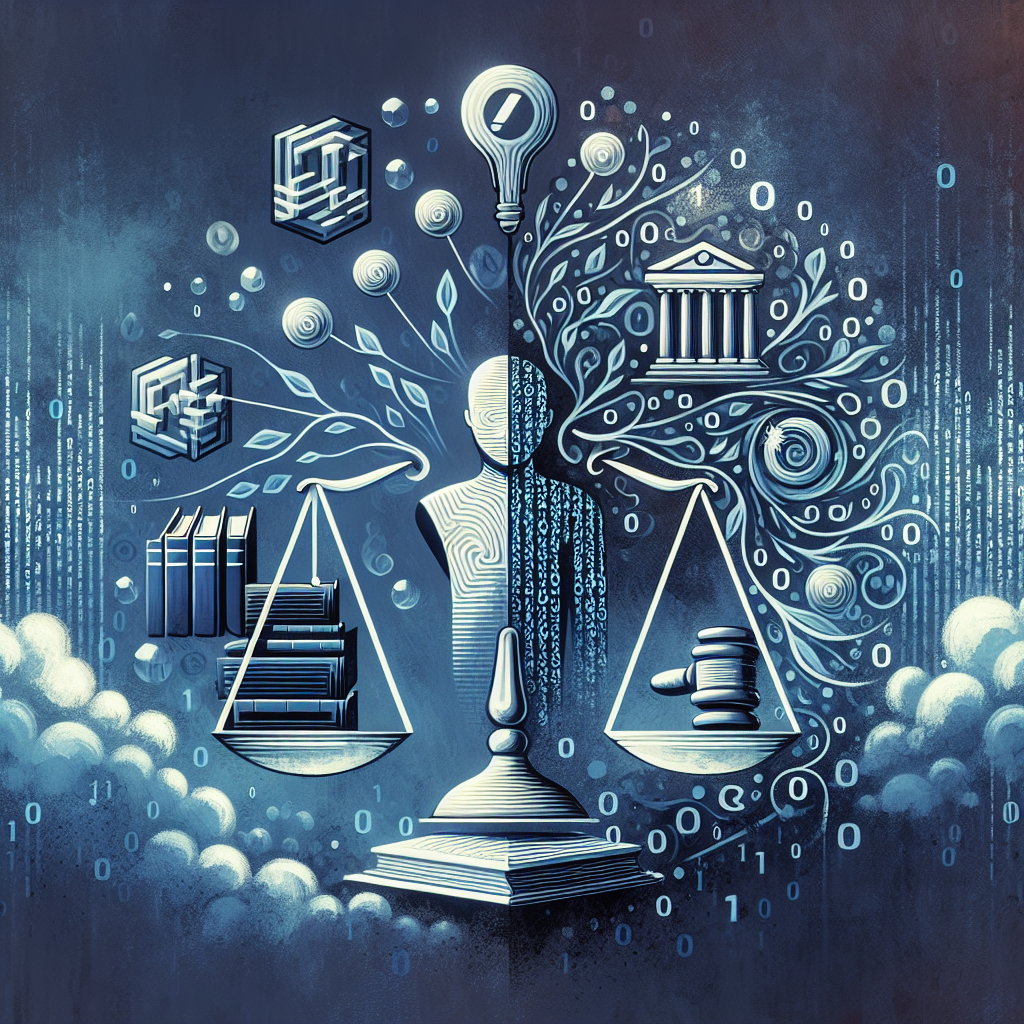In recent years, artificial intelligence (AI) has significantly impacted the legal industry, particularly in the realm of legal research and analysis. AI-powered tools are now being used by law firms, legal departments, and individual practitioners to streamline research processes, enhance decision-making, and improve overall efficiency. However, as AI technology continues to advance, ethical considerations surrounding its use in legal research and analysis have become increasingly important.
Ethical Considerations for AI-Powered Legal Research and Analysis
1. Bias and Fairness: One of the primary ethical concerns surrounding AI-powered legal research and analysis is the potential for bias in the algorithms used to generate results. AI systems are only as good as the data they are trained on, and if that data is biased or incomplete, it can lead to biased results. For example, if an AI system is trained on historical legal cases that disproportionately favor one group over another, it may inadvertently perpetuate that bias in its recommendations. To mitigate this risk, it is crucial for legal professionals to carefully evaluate the data used to train AI systems and implement measures to address any biases that may arise.
2. Transparency and Accountability: Another key ethical consideration is the need for transparency and accountability in AI-powered legal research and analysis. Legal professionals must be able to understand how AI algorithms arrive at their conclusions and be able to verify the accuracy and reliability of those conclusions. Additionally, there should be mechanisms in place to hold AI systems accountable for their recommendations and decisions, particularly in high-stakes legal matters. This may include implementing audit trails, documentation requirements, and mechanisms for challenging AI-generated results.
3. Privacy and Confidentiality: AI-powered legal research and analysis often involve the processing of large amounts of sensitive and confidential data. It is essential for legal professionals to ensure that this data is protected and handled in accordance with relevant privacy laws and regulations. This includes implementing robust security measures to safeguard data against unauthorized access, breaches, and misuse. Legal professionals must also consider the ethical implications of sharing data with third-party AI providers and ensure that appropriate safeguards are in place to protect client confidentiality.
4. Professional Judgment and Oversight: While AI technology can provide valuable insights and recommendations, it should not replace the professional judgment and oversight of legal professionals. Ethical considerations require that legal professionals critically evaluate and validate AI-generated results, taking into account their own expertise, experience, and ethical obligations. Legal professionals must also be prepared to intervene and override AI recommendations when necessary, particularly in cases where ethical considerations or legal principles are at stake.
5. Impact on Legal Profession: The widespread adoption of AI-powered legal research and analysis has the potential to fundamentally transform the legal profession. While AI technology can enhance efficiency and productivity, it may also lead to job displacement, changes in traditional roles, and ethical dilemmas for legal professionals. It is essential for legal professionals to proactively address these challenges and opportunities, including by investing in training and education, developing ethical guidelines for AI use, and engaging in discussions about the future of the legal profession.
Frequently Asked Questions (FAQs) about Ethical Considerations for AI-Powered Legal Research and Analysis
Q: How can legal professionals ensure that AI algorithms are unbiased and fair?
A: Legal professionals can mitigate bias in AI algorithms by carefully evaluating the data used to train them, implementing measures to address bias, and monitoring algorithm performance for fairness and accuracy.
Q: What steps can legal professionals take to ensure transparency and accountability in AI-powered legal research and analysis?
A: Legal professionals can promote transparency and accountability by understanding how AI algorithms work, verifying the accuracy of their results, implementing audit trails, and establishing mechanisms for challenging AI-generated recommendations.
Q: How can legal professionals protect privacy and confidentiality when using AI-powered legal research and analysis?
A: Legal professionals can protect privacy and confidentiality by implementing robust security measures, complying with relevant privacy laws and regulations, and ensuring that data is handled securely and ethically.
Q: How can legal professionals balance the use of AI technology with their professional judgment and oversight?
A: Legal professionals can balance the use of AI technology with their professional judgment by critically evaluating AI-generated results, considering their own expertise and experience, and intervening when necessary to uphold ethical considerations and legal principles.
Q: What ethical considerations should legal professionals be aware of when adopting AI-powered legal research and analysis?
A: Legal professionals should be aware of ethical considerations such as bias and fairness, transparency and accountability, privacy and confidentiality, the impact on the legal profession, and the need to balance AI technology with professional judgment and oversight.
In conclusion, ethical considerations for AI-powered legal research and analysis are essential for ensuring the responsible and ethical use of AI technology in the legal profession. By addressing issues such as bias, fairness, transparency, accountability, privacy, confidentiality, and professional judgment, legal professionals can harness the benefits of AI technology while upholding their ethical obligations and responsibilities. By proactively addressing these ethical considerations, legal professionals can navigate the complexities of AI-powered legal research and analysis and contribute to a more ethical and just legal system.

